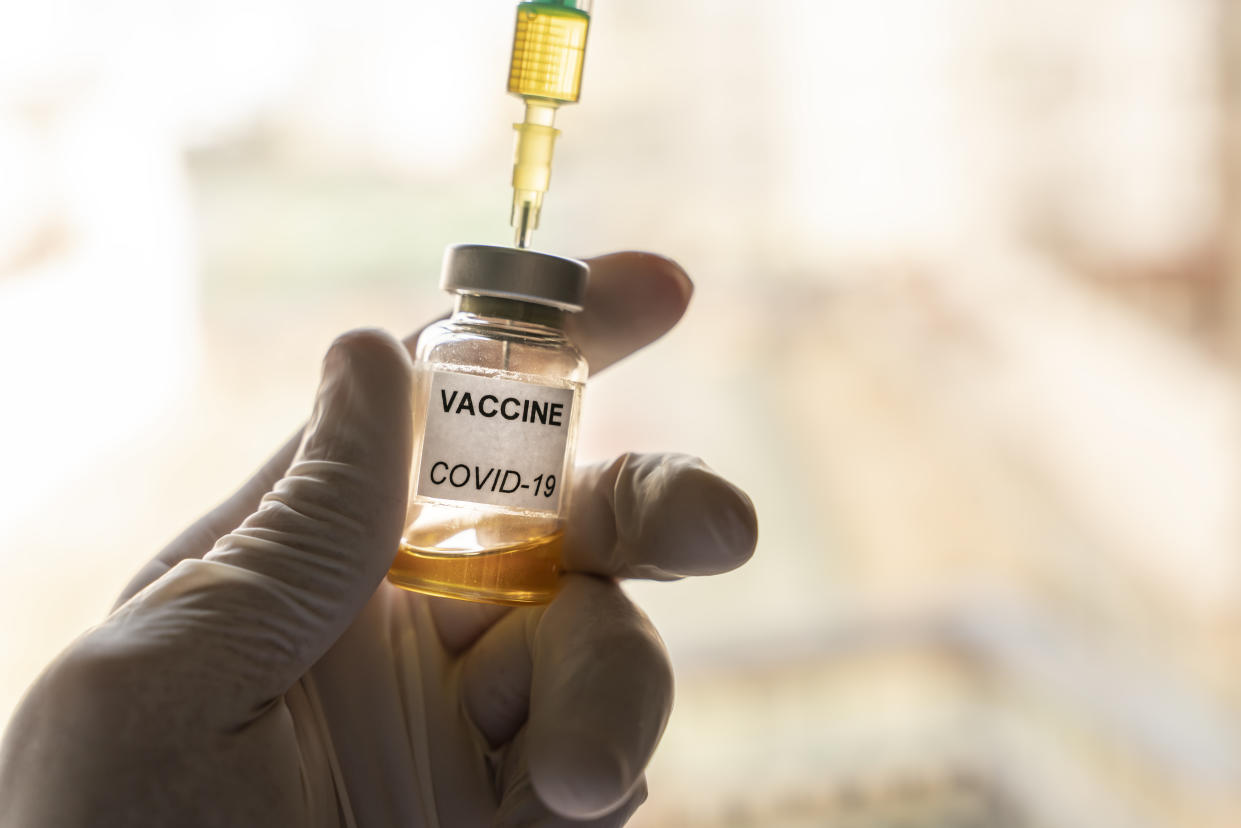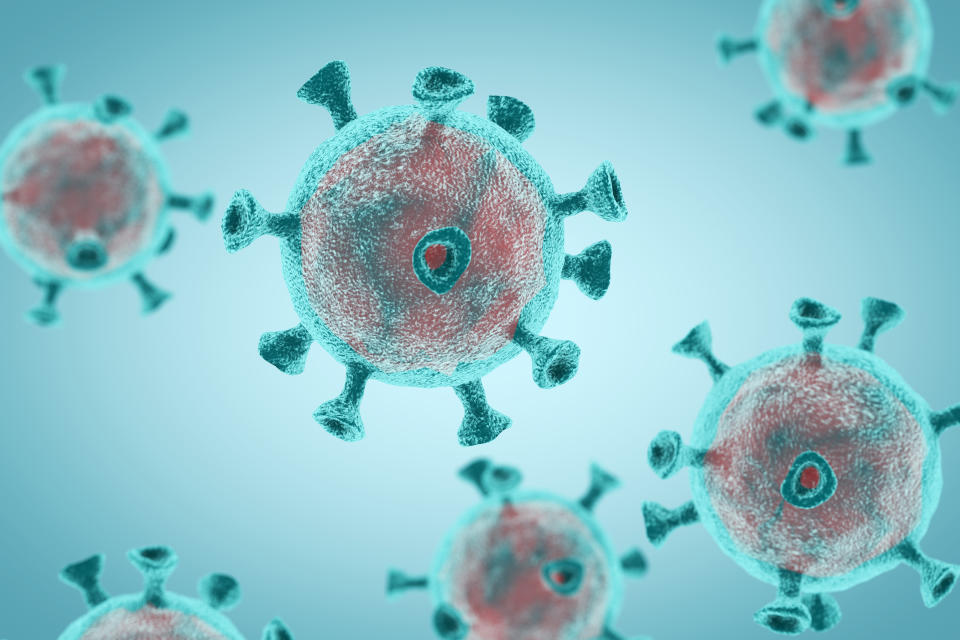The obstacles that could hold back Pfizer's coronavirus vaccine

An end to the coronavirus pandemic may be in sight after a vaccine candidate showed promise in more than 43,000 people.
An effective jab has long been hailed a route back to life as we once knew it, prompting scientists all over the world to work on more than 150 potential immunisation programmes.
With further safety data imminent, Pfizer plans to shortly submit an Emergency Use Authorization (EUA) to the US Food and Drug Administration (FDA). If approved, a handful of people in the UK could receive the jab before the end of 2020.
Read more: Two-thirds of severe coronavirus patients endure long COVID for seven weeks
While Pfizer’s CEO hailed the outcome “a great day for science and humanity”, others have been slightly more measured, with doctors and officials alike stressing the encouraging results are still just a small light at the end of the tunnel.

Extent of vaccine’s protection unclear
Preliminary data from Pfizer’s ongoing study suggests the vaccine may be more than 90% effective at preventing the coronavirus from taking hold in an individual seven days after their second dose.
With the two doses having to be administered 21 days apart, “this means protection is achieved 28 days after the initiation of the vaccination”. Pfizer executives have stressed the final jab’s efficacy may vary.
Although hugely promising, it is unclear whether the vaccine wards off COVID-19 – the disease caused by the coronavirus – in people who catch the infection.
Early research suggests the coronavirus is mild in four out of five cases, however, some develop life-threatening complications.
“It’s great news the Pfizer vaccine is reported to be 90% effective, but it’s important to understand what that means,” said Professor Jonathan Ball from the University of Nottingham.
“For a vaccine to be truly effective it needs to protect those most vulnerable from suffering severe COVID-19 or prevent those less vulnerable from becoming infected and then transmitting the virus to others.
“Vaccines will be incredibly important in our battle against this virus, but we need to be assured they will perform as we would hope.”
Read more: Coronavirus survivors twice as likely to develop psychiatric disorder as those who overcome flu
With full data yet to be released, it is unclear whether the vaccine may protect against severe disease but not infection transmission.
“Then individuals will be well protected, but herd immunity won’t be reached,” said Dr Colin Butter from the University of Lincoln.
It is also unknown how long the jab may offer protection, with previous studies producing mixed results when it comes to a coronavirus survivor’s immunity.
“Longer periods of follow-up are required during an ongoing outbreak to determine need for repeated booster doses,” said Dr Penny Ward from the Faculty of Pharmaceutical Medicine.
Watch: Can you catch coronavirus twice?
Storage at -80C a logistical issue
As well as questions lingering about the vaccine’s effectiveness, some experts have logistical concerns.
“One can foresee at least two drawbacks to the Pfizer vaccine, even assuming it works as well as we think,” said Dr Jonathan Stoye from The Francis Crick Institute.
“First, it requires two injections for full effectiveness.
“Second, it needs to be stored at -80C (-112F) before use.”
Vaccines are typically kept at between 2C (35.6F) and 8C (46.4F). These jabs involve administering part of a virus or an inactivated but whole pathogen. This triggers an immune response that can be relaunched if an individual is exposed to the infection.
Pfizer’s jab is unique in that it was developed via mRNA technology, which is typically used for cancer therapies. This instructs human cells to generate a coronavirus protein, leading to an immune response.
While easier to manufacturer, which could make development quicker and cheaper, mRNA vaccines must be stored at far lower temperatures.
Storage at -80C is around four times colder than a standard household fridge, with the jab potentially having to be kept in liquid nitrogen.
“Nowhere on the planet does the logistical capacity exist to distribute vaccines at this temperature and volume without massive investment,” said Professor Toby Peters from the University of Birmingham.
“The problem is particularly acute in the global South, where many rural villages don’t even have a working vaccine fridge.
“We must take this once-in-a lifetime opportunity to create sustainable solutions for COVID-19 vaccine deployment that also can deliver resilient and sustainable health cold-chain systems.”
Read more: The health emergencies you didn't hear about in 2020
In September, scientists from the NF Gamaleya National Research Centre in Moscow analysed a frozen and freeze-dried version of Russian’s controversial vaccine candidate, anticipating the freeze-dried formula may better suit hard-to-reach regions.
Both versions of the jab were found to produce an immune response, with no safety concerns. Other experts later called the results “highly unlikely”.
Speaking of the Pfizer jab, Dr Butter said its temperature storage requirements were “beyond the capabilities of the usual cold storage and transport used for frozen goods”, but added the issue was “not insurmountable”.
The UK is said to have some advantage due to the NHS and Public Health England having existing supply chains, “which should enable [it] to be amongst the first countries in the world to be in a position to vaccinate if this candidate is approved for use and doses are available”, according to Steve Bates from the UK BioIndustry Association.
Nevertheless, Professor Stoye added: “There is every reason to continue the search for novel vaccines, particularly those requiring only one dose which can be distributed in powder form and reconstituted prior to use.”
Regulatory approval not a given
As with all vaccines, the FDA or European Medicines Agency must approve Pfizer’s jab before it can be given to the public.
Some have called for the process to be sped along given the pressing pandemic, while others have stressed now is not the time to cut corners.
Vaccines go through a three-stage testing process before the necessary data is submitted for approval, which can taken 10 to 15 years.
Read more: Leukaemia patient infectious with coronavirus for at least 70 days
“The rapidly-produced Ebola vaccine generated very high levels of effectiveness and exceeded all expectations,” said Dr Michael Head from the University of Southampton.
“Equally, billions of dollars and numerous clinical trials have struggled to produce any form of vaccination against HIV.
“Science can be unpredictable.”
Effectiveness among the elderly unclear
Statistics have repeatedly shown the coronavirus is significantly more likely to trigger complications in the elderly or those with pre-existing conditions, like obesity or diabetes.
The Pfizer trial enrolled participants older than 12, who could have underlying health issues.
The preliminary data has not broken down the vaccine’s benefits according to the age of the participants.
Coronavirus aside, the elderly tend to have a smaller immune response following vaccination.
“It is now important for us to learn more about those who have been shown to be protected from infection and whether they represent the at-risk populations, and so we look forward to seeing the fully reviewed data,” said Professor Trudie Lang from the University of Oxford.
Prioritising those who are most at risk of COVID-19 also means it may be some time before the vaccine reaches the public.
“What must be remembered is rolling out such a vaccine to the general population will be done in stages, with the most vulnerable and front-line responders first in line,” said Professor Gary McLean from London Metropolitan University.
“This will take time and effort, so will likely be well into 2021 before we see general availability.”
Pfizer expects to produce up to 50 million vaccine doses in 2020 and up to 1.3 billion doses in 2021.
“The UK government have pre-ordered 10 million doses for supply this year [or] early next, which, assuming two doses are needed, are enough to vaccinate 5 million people,” said Dr Ward.
“This is not enough to provide vaccine for all of the older age population in the UK.”

Public concerns over rushed vaccine
Concerns over the vaccine being rushed may also put people off being immunised, even those who are not generally anti-vaxx.
“The actual data from the trial is not publicly available for full scrutiny and it is noted the trial is not yet complete,” said Dr Andrew Preston from the University of Bath.
“There is growing concern about public attitudes towards COVID-19 vaccines, with increasing numbers of people expressing doubts as to whether they would receive a vaccine when ones becomes available.
“Until we have full transparency, the data available for independent scrutiny, there should be great care in what headline is presented to the world.
“Pfizer also state they will apply for an EUA before the end of this month, which to some will appear a premature move given the required two months of safety data are not yet in and the trial still in process.”
Dr Preston added: “None of this means the vaccine is not as effective or as safe as Pfizer indicate”, however, hyped drugs like hydroxychloroquine and remdesivir turned out to be disappointing when tested for the coronavirus.
Dr Clarke agreed a lack of full data means we have to take Pfizer’s claims at “face value”, but added “it seems highly unlikely a major pharmaceutical company would get such eagerly awaited news wrong”.
England’s deputy chief medical officer Professor Jonathan Van-Tam has said he will be at the front of the queue if and when the vaccine becomes available, and has already told his mother to “get ready”.
Watch: What is long COVID?



